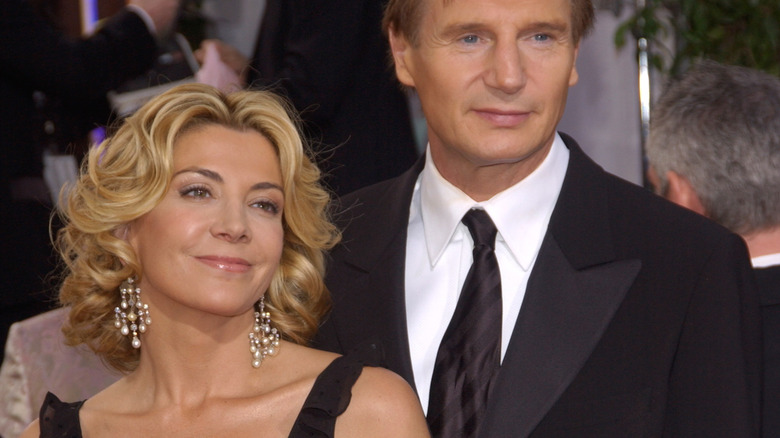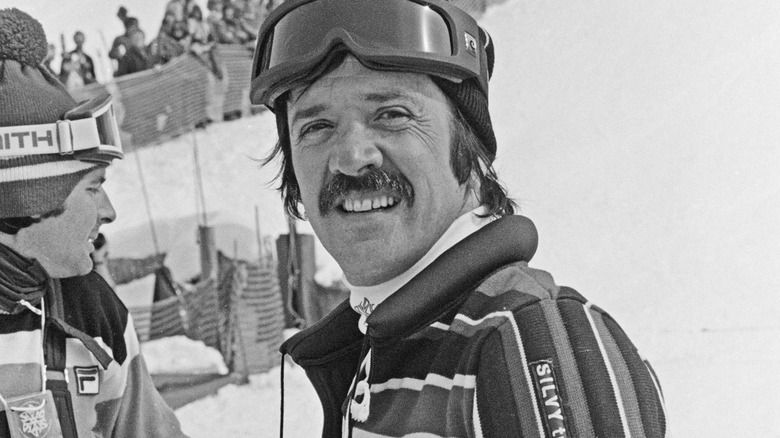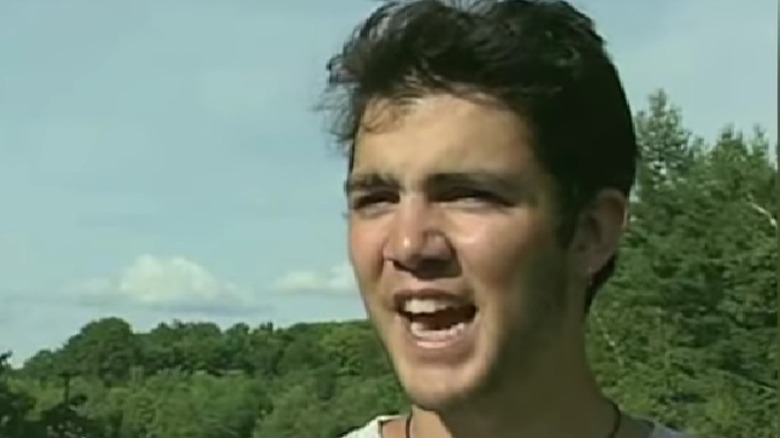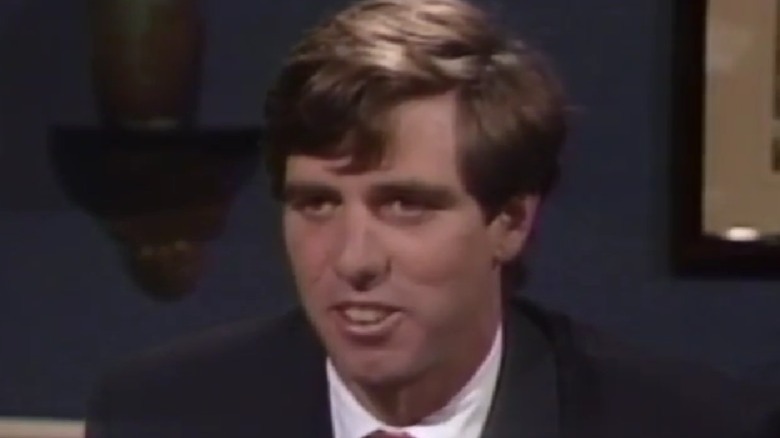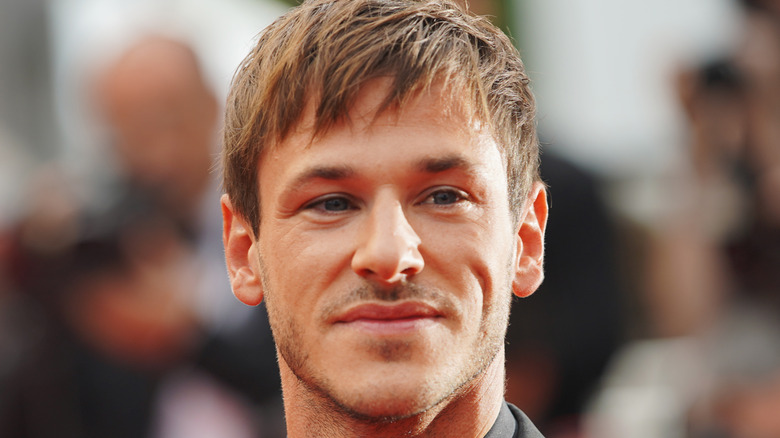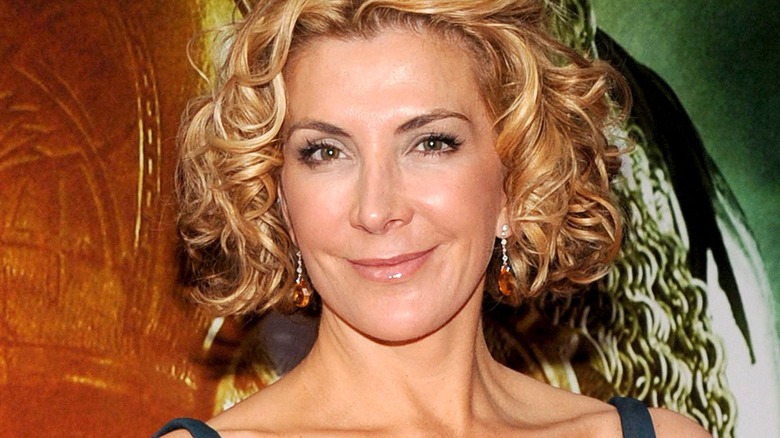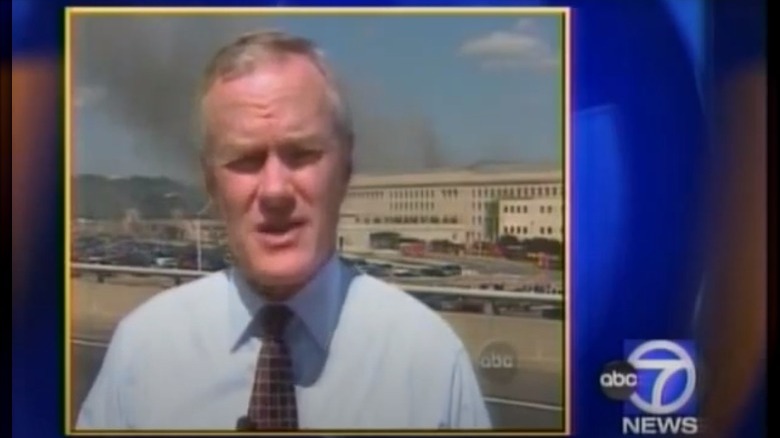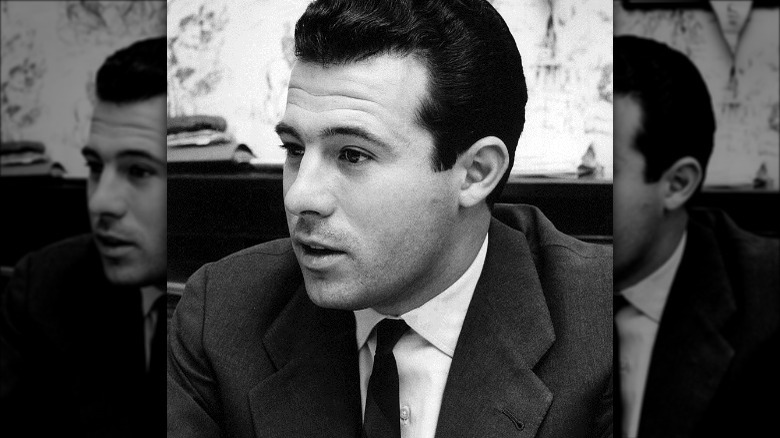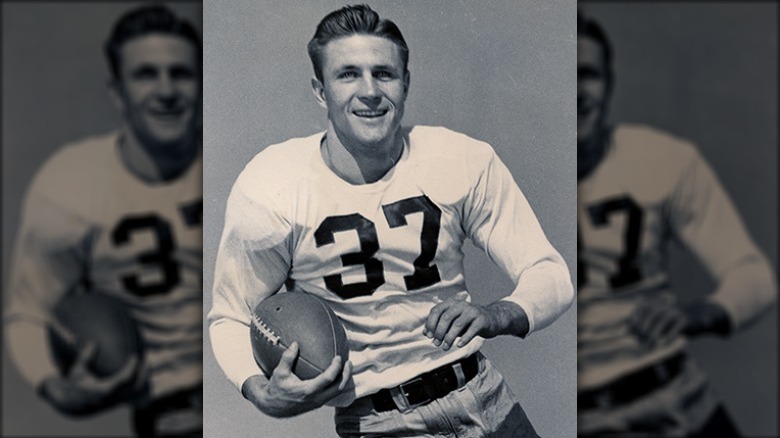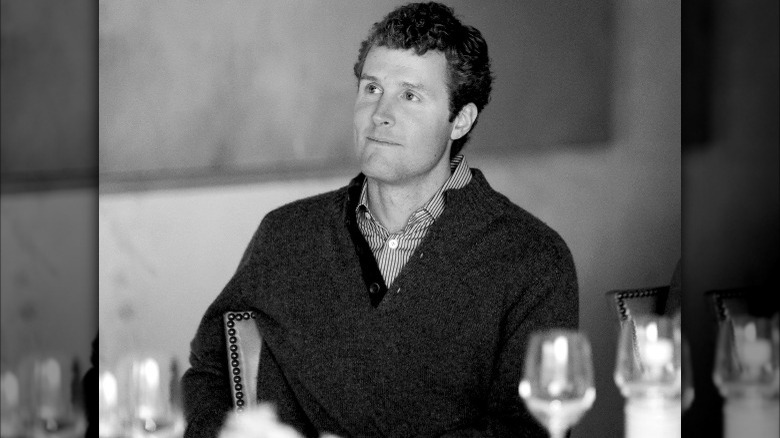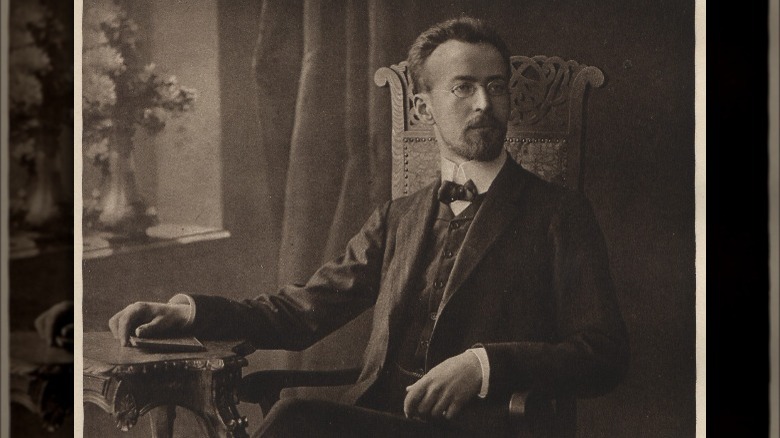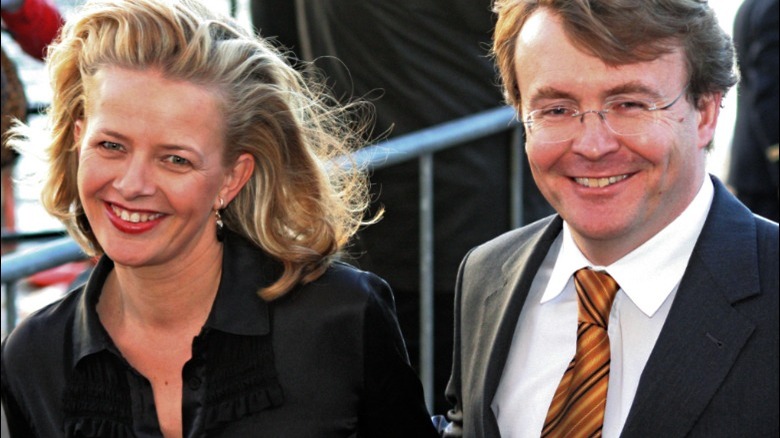Famous People Who Died While Skiing
Skiing might seem like one of those extreme sports that was invented fairly recently, but according to the BBC, people have been strapping pieces of wood to their feet and flying down mountains for a long time. The very first to do it, archaeologists suggest, was Cro-Magnon man.
They were hopping on skis a whopping 22,000 years ago, but it wasn't until the 1950s and '60s that skiing became more of a casual sport. That's not entirely surprising: It's not exactly the sort of thing most people can just decide to do one day and suddenly find they're really, really good at it. It takes a lot of practice and a lot of skill, and not surprisingly, it can turn deadly.
The Children's Hospital of Pittsburgh says that every year, there are around 38 people who die while either snowboarding or skiing. While it might sound logical that most of the fatalities are new and beginner skiers, The Denver Post says that's not the case at all. Most of the deaths are accomplished skiers: They're the ones taking more risks, and once someone has been on the slopes for a while, safety often isn't a number one consideration anymore. Where skiing is concerned, safety should be paramount.
And the slopes don't care if someone's famous. They don't care if someone's a renowned actor, the member of a political dynasty, or even royalty — they'll claim those lives, too.
Sonny Bono
By 1988, Sonny Bono had officially and successfully reinvented himself. After spending the 1960s and '70s on-stage with then-wife Cher, he found himself in the restaurant business and then in politics. First a mayor then a member of the House of Representatives, he kicked off his second term in 1996, and died in 1998 (via The New York Times).
Bono was on a skiing holiday in Lake Tahoe with his fourth wife, Mary Whitaker, when the tragic accident occurred. Whitaker spoke to the Desert Sun to recount the day that her life changed forever: "The kids were so cold, they were crying. I said, 'OK. He had to have skied to the very bottom. That's what happened. He'll be there waiting for us.'"
He was. Bono hadn't been wearing a helmet, but according to those who had recovered his body, he had collided with a tree with such force that even a helmet likely wouldn't have allowed him to walk away. His wife was taken to the scene: "The minute I got there, I saw his feet and his legs, and I knew it was him."
Bono was 62 years old at the time of his death, and during an interview after his election to Congress, he had addressed how he would like to be remembered: "As someone who is his own man, a maverick, and really, a person of substance like other people. Not necessarily the brilliant person, but recognize that there is substance there, you know."
Michel Trudeau
Canadian Prime Minister Justin Trudeau wrote of the accident that claimed his brother's life in 1998 (via The Star): "Why hadn't I, as his older brother, found some way to protect him? We lived in the same province. I should have visited him more, called him more, watched over him more, done something to keep him from danger."
Michel Trudeau — brother to one future Canadian PM and the son of a former PM — had been on a three-day skiing trip on the Kokanee Glacier in British Columbia when he and his friends were caught in an avalanche. According to the CBC, two of his friends were pushed off the ski trail, while he and another friend were carried into the freezing Kokanee Lake. Andrew Bednarz found himself close to shore and was able to swim out, but Trudeau — weighted down by the gear he carried — was drowned.
The accident happened on November 13, and a memorial was held a week later. It wasn't until 10 months later, says ThoughtCo., that the weather cooperated enough to allow the Royal Canadian Mounted Police to mount an effort to recover his body from the lake, but his remains were never found.
The Trudeau family had called off the search, and Justin would later recall his brother's wishes, shared as they watched a documentary on burial rites: "When it's my turn, just leave me down at the bottom of the mountain where I lie."
Michael Kennedy
When The New York Times reported on the New Year's Eve 1997/1998 death of 39-year-old Michael Kennedy, they said that he hadn't just been skiing, he had been doing something that the family had been for generations: playing football, on skis.
A family friend who spoke on the condition of anonymity said that they'd seen a match and was shocked at how dangerous it was. Goals were trees and signs, and skiers would throw the ball to score goals. The friend recalled, "It is Kennedyesque. There is a lot of laughing, vigor, excitement, and a big rush."
It was on one of the trips downhill that Michael Kennedy collided with a tree. Efforts to stabilize him from the severe head injury he sustained were futile, and he was pronounced dead about an hour and a half after the collision. It made him the second of the late Robert F. Kennedy's 11 children to die an early death, the Times reports, and eye-witness accounts vary. Some say that he had been distracted by the ball, while others said that he had hit a patch of snow that had been turned to ice.
His death came just months after he had made headlines with a massive, Kennedy-sized scandal: He had been having an affair with the family's babysitter, who had been watching the three children he shared with his wife, Victoria Gifford Kennedy. According to the Los Angeles Times, there were rumors at the time of his death that they had reconciled.
Gaspard Ulliel
Cannes Film Festival director Thierry Fremaux described Gaspard Ulliel as one of the "new generation of actors who were making tomorrow's French cinema." Fremaux called him "equally brilliant and talented," via Variety, as he mourned the loss of one of the nation's up-and-coming stars.
Ulliel was already wildly popular in France after several high-profile roles led to a slew of awards, and he had just made his Marvel debut in "Moon Knight" when he was killed in a tragic skiing accident. According to The Guardian, his death came on January 19, 2022, shortly before the premiere of the show. A local French news agency first reported that his death had come after an accident at a resort in the Alps, where he had been involved in a collision with another skier. Details were immediately scarce, as authorities said that there was an investigation already in process. Reports also revealed that the other skier had not been injured.
Natasha Richardson
In 2009, The Guardian reported on a freak accident that had taken the life of Tony award-winning actress Natasha Richardson, and it had happened when she and her two children were at Montreal's Mont Tremblant ski resort.
They were taking skiing lessons in the resort's beginner area when she lost her balance and fell down the hill. Instructors said she didn't hit anything, and when she came to a stop, she was laughing at herself for taking the seemingly harmless fall. Her mood continued, as resort spokesperson Catherine Lacasse revealed that she was "laughing and joking" as she went back to her hotel under her own power.
Attendants stayed with her to make sure there were no lasting effects from the fall, and after about an hour had passed, she started to suffer from a severe headache. After an initial team of paramedics was reportedly turned away, her condition worsened and she was rushed to a nearby hospital.
Biography says that by the time husband Liam Neeson arrived at the hospital, she had already been declared brain-dead. The family had her flown back to her New York City home, where she was removed from life support. It was later revealed that the bump she had taken had caused a condition called epidural hematoma, which is the buildup of blood in the brain. Son Micheál Richardson later spoke of his grief, saying (via Today), "... it really sort of messes with your mind, whether you believe in fate or not."
John McWethy
During John McWethy's time as a journalist, he had traveled to more than 50 countries, reported from amid conflicts in areas like Kosovo and Afghanistan, and was the face of ABC News as he reported live from the Pentagon during the Sept. 11, 2001, terrorist attacks (pictured). After his retirement, The New York Times says that he and his wife moved to Boulder, Colorado, and it was there that he died in a tragic skiing accident on February 6, 2008.
According to what ABC News President David Westin told CNN, McWethy had specifically chosen Boulder as the place to spend his retirement because of the skiing, noting, "He was doing something that he truly loved, but he deserved many more years doing it than what he was given."
A witness who saw the accident unfold later said that he had lost control, missed a turn on one of the site's intermediate trails, and collided with a tree. Reports stressed that while McWethy had been wearing a helmet, the ultimate cause of his death was blunt-force injuries sustained when he hit the tree chest-first. He passed away while being treated at a nearby medical center.
Alfonso, Duke of Anjou and Cadiz
Alfonso de Borbon y de Dampierre wasn't just the duke of Anjou and Cadiz, but he was a massive skier. Over the course of his lifetime, he had been president of the Spanish Skiing Federation, the Spanish Olympic Committee, and was a part of the Council of the Federation Internationale du Ski. After decades in the sport, he was killed in a freak accident in 1989.
According to The New York Times, the duke — a cousin of Spain's King Juan Carlos — was at Colorado's Beaver Creek Resort for the World Alpine Skiing Championships. He was killed when he ran into a cable that was raising a banner over the finish line of one of the men's downhill courses, and although he was rushed to a nearby hospital, he was pronounced dead on arrival.
More details emerged later, when the Associated Press reported that the course had, in fact, been closed when the duke decided to go down it. Warnings to stop were acknowledged and ignored by the skiers, witnesses testified, with defending world champion Peter Mueller explaining that even if the duke had gotten authorization to be on the course, "I think that's a big mistake. If the downhill course is closed, it should be closed for all people."
Doak Walker
Doak Walker was named Rookie of the Year in 1950 as a member of the Detroit Lions, and in addition to his slew of awards, this says it all: According to the Pro Football Hall of Fame, in his six years in pro football, he was selected for the Pro Bowl five times. He retired from football early, passing his name on to the Doak Walker Award, given to every year's best college running back. He won the Heisman Trophy in 1948, was All-NFL, and could play pretty much any position.
After leaving football, he settled down to a regular job as a public relations consultant, according to the Los Angeles Times, once saying that he never regretted leaving the game behind: "I'm not sorry, because I've got all my teeth, both my knees, and most of my faculties."
And that makes his death at the age of 71 particularly tragic. According to the Los Angeles Times, he was involved in a skiing accident on January 30, 1998. Falling after hitting a patch of questionable terrain, he was partially paralyzed. Regaining some of his ability to talk after months of rehab, he succumbed to complications of the paralysis and passed away in September of the same year.
Sam Beall
Sam Beall isn't a traditional celebrity, but those who are in the know, well, they're definitely in the know.
Sam Beall's father — Samuel E. Beall III — was the founder of the restaurant chain Ruby Tuesday. The younger Beall was a restaurateur in his own right: According to The New York Times, he owned and ran Blackberry Farm, a multi-million-dollar Tennessee lodge considered one of the best resorts and luxury vacation destinations in the country. He did, that is, until he was killed in a tragic skiing accident that happened on February 25, 2016.
No one was there to see what happened, but after the recovery of his body from the slopes of Colorado's Beaver Creek ski resort, it was determined that it had been a freak accident — nothing more, nothing less. Sam had apparently collided with one of the many wooden posts that marked the edge of the ski run, and a lawyer hired by the family came to the same conclusion as the coroner. It was determined that chest injuries sustained in the collision were the cause of death (via The Denver Post), and he was buried on the grounds of his 4,200-acre property.
His wife later relayed how it had fallen to her to not only keep the property and business going, but to raise their five children. It taught her a valuable lesson: "The world doesn't know how to grieve. No one talks about it. Our society needs to learn to have real conversations about things."
Mieczyslaw Karlowicz
Mieczyslaw Karlowicz might not be a household name, but according to Dziedzictwo Muzyki Polskiej, he's considered one of the best symphonists in Polish music, and his works are considered masterpieces. Would he have become an even more globally renowned musician had his life not been cut short?
Born in 1876, Karlowicz began composing around the turn of the century. Culture lauds his compositions, saying that he wasn't just a composer, but a mountaineer as well — a hobby that inspired his musical creations. By 1906, he had settled in the Tatra mountains and published accounts of his adventures in the Polish wilderness, and ultimately died there.
Karlowicz wasn't just an experienced outdoorsman, but he had become a pioneer in the field of mountaineering. It wasn't odd, then, that he was alone on February 8, 1909. He was skiing on a mountain called Maly Koscielec when he was caught in an avalanche and killed.
Johan Frisco
In February of 2012, the Dutch royal family was dealt a heartbreaking blow when Prince Johan Frisco was caught in an avalanche while on a skiing trip in Austria. According to the BBC, he and three companions had been on the slopes when the avalanche happened, and although emergency rescue workers were able to get to him relatively quickly, the 15 minutes he spent buried in the snow had catastrophic effects.
The lack of oxygen resulted in massive brain damage, and the prince also suffered a 50-minute-long heart attack. In spite of hope that the damage done might actually be slowed by the hypothermia he also suffered, hope quickly dimmed.
The prince spent months in a coma, and the BBC reported that there was little information being released about his condition. The months continued to stretch on and on, and in July of 2013, he was released to his family and transferred to the royal residence at The Hague, where he was reportedly in a "state of minimal consciousness." In spite of the specialized care and medical attention, in August of 2013 it was announced that the prince had died. The official cause was "complications related to the hypoxic brain injury," and he left behind his wife and their two daughters.
